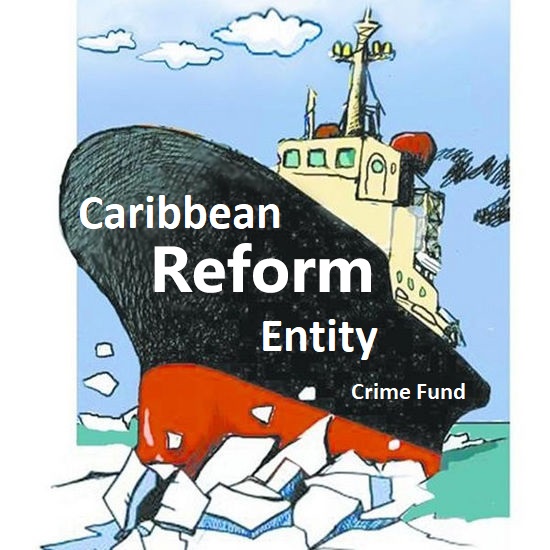Reform Entity tackles chaos at Crime Fund

PHILIPSBURG – The Caribbean Reform Entity wants to contribute to strengthening the constitutional state, it appears from the document the Ministry of Home Affairs and Kingdom Relations that outlines the entity’s plans for Curacao, Aruba and St. Maarten. One of the projects is to put management and control of the Crime Fund in order.
The CRE-document simply states that St. Maarten will abide by the recommendations from the Law Enforcement Council; the same applies to Curacao. Both countries have to appoint an independent organization that will be tasked with controlling whether the fund abides by the recommendations and whether it functions properly. Short-term recommendations will have to be followed up on no later than March 1, 2021.
The Crime fund has been in the crosshairs of the Law Enforcement Council and the General Audit Chamber in 2018 and 2019. Both institutions arrived at the same conclusion: the fund is not always used for its intended purpose – funding projects focused on combating crime – and its administration and oversight are in a shambles. “The Crime Fund has become the emergency fund for the Minister of Justice to pay for matters outside of his budget, the Law Enforcement Council concluded.
When the Law Enforcement Council went hunting for data for its research, it turned out that the Minister of Justice only had information from 2016 forward, while the fund was established on 10-10-10.
Between 2016 and 2018 the fund granted thirty requests for funding for a total of 4.3 million guilders ($2.4 million) but the projects that were supposedly executed with this money were never evaluated.
The main recommendations from the Law Enforcement Council to the Minister of Justice were: execute the national ordinance Crime Fund consistently, develop an actual policy for it, establish a national ordinance containing rules and safeguards against inappropriate use and make sure that all claims are paid to the fund.
The General Audit Chamber concluded in 2018 that the law was not followed, that the fund’s financial management was inadequate, and that the minister was not in control.
In 2014 the Law Enforcement Council found that the fund was used to pre-finance government projects but that three years later, the money used for this purpose had not been paid back.
It also remains unclear which projects fall within the scope of the Crime Fund. One source told the Law Enforcement Council: ‘As long as there is no definition of combating crime, anyone can submit a project-proposal.”
Projects financed by the fund in the past that have no apparent link to combating crime are for instance life insurance for the employees of the Justice Ministry (231,000 guilders or $129,000) and the removal of debris from the Pointe Blanche Prison (9,000 guilders or $5,000).
The CRE-document states that for the time being there will be no cost-cutting measures that would affect the most vital sectors for safety and security – police, customs, prosecutor’s office, court, coast guard, prison, and national security service.
The CRE will also train its guns on the gaming sector – the brick and mortar casinos and the online gaming operators. Based on existing and, if need be, additional research the CRE will determine how to reform this sector. The purpose is not to wipe it off the face of the earth but to increase revenue for the government.
St. Maarten will have to make an agreement with the Netherlands about strengthening border control. Measures will go into effect per January 1, 2021. This agreement is about the deployment and the capacity of the Royal Military Police (Marechaussee), Customs and the Coast Guard.
St. Maarten will also finally have to make work of the detention conditions in the Pointe Blanche Prison. The CRE-document states that St. Maarten must execute the agreements it made about this with the Netherlands in 2018 and that it will include the resources needed for this purpose in its budget.
To meet international detention-requirements, St. Maarten will have to commission UNOPS (the United Nations Office for Project Services) for research into the long-term plan for the detention situation on the island. Justice Minister Anna Richardson had already a virtual meeting with UNOPS representatives on July 9 to discuss plans for the construction of a new prison.
###
Related articles:
Caribbean Reform Entity has 59 measures in mind
Knops issues tight deadlines for liquidity support conditions
Reform Entity wants to bring down Public Wage Bill to 10 percent of GDP
Reform Entity: Retirement age to 67 by 2025
Reform Entity tackles Chaos at Crime Fund
Reform Entity: Healthcare and Education Systems need improvement
Final review: Will the Caribbean Reform Entity become a reality?
Opinion by Hilbert Haar: “Rejected? Yes; no; well, maybe”


























